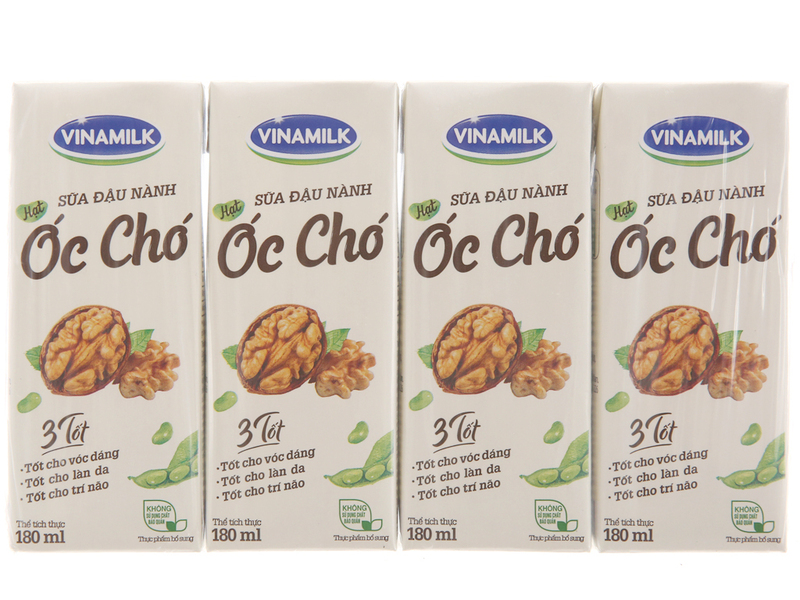Walnuts are a rich source of nutrients, including vitamins from the B group, and minerals such as manganese, copper, calcium, iron, zinc, and selenium. They also contain antioxidants, which help prevent cancer and slow down the aging process. Walnut milk, in particular, offers a plethora of health benefits for both adults and children.
1 Should infants drink walnut milk?
Walnut milk is considered the king of nut milk due to its high nutritional content and abundance of vitamins beneficial for children. Therefore, parents can rest assured that it is safe to give their children walnut milk. Here are some of the advantages of doing so:
Brain Health

Walnuts are rich in folic acid, which plays a crucial role in brain development and function, contributing to the overall development of a child’s nervous system. Additionally, walnut milk contains Omega-3 fatty acids, with levels five times higher than those found in salmon. Research suggests that regularly giving walnut milk to children can enhance their brain development, improve memory, and boost intelligence.
Healthy Digestion
Walnut milk is an excellent source of fiber, which helps prevent digestive issues and constipation in children, promoting a stable and healthy digestive system.
Unlike other sweetened nut milk, walnut milk has a natural sweetness that helps maintain the intestinal villi, preventing digestive irritation and reducing the risk of diarrhea.
Vitamin and Mineral Supplement

Walnuts are packed with essential nutrients for children’s health, including vitamins B1, B2, B3, B5, B6, and B9, as well as minerals like manganese, copper, iron, zinc, and selenium.
Height Development and Weight Maintenance
Walnut milk contains a similar amount of calcium as cow’s milk, making it an excellent source of calcium and vitamin D3 to support your child’s height development.
Additionally, walnut milk helps children gain and maintain a healthy weight, rather than promoting excessive weight gain.
Boosting Immune System

Walnut milk is abundant in vitamins A, B, C, and K, providing a comprehensive nutritional profile. Folate and vitamin B9 enhance the activity of immune cells and increase natural antibodies, strengthening your child’s defense against external bacterial invaders.
Stimulating Your Child’s Palate
To enhance the flavor and prevent children from getting tired of the taste, walnut milk is often combined with other nuts such as almonds, cashews, and hazelnuts, all of which offer additional health benefits.
2 What is the recommended age for drinking walnut milk?

Children aged one year and above can safely drink walnut milk. Notably, the age range of one to ten years old is considered the prime time for children to consume walnut milk as this is when their brains and bone systems develop rapidly. The Omega-3 fatty acids in walnut milk aid in brain development, while the calcium content supports maximum height growth.
It is recommended to give your child one to two 140ml boxes of walnut milk per day, along with animal milk such as cow’s or goat’s milk, for a well-rounded nutritional profile.
Walnut milk is a nutrient-dense food that offers numerous health benefits for children. It is important to incorporate it into their diet in a scientific and moderate manner to ensure they absorb all the nutrients it has to offer.
What Are the Different Types of Plant-Based Milk? Which One Is the Healthiest?
The world of plant-based milk alternatives is an ever-growing and exciting one, with an array of options now available to those seeking a nutritious and healthy alternative to dairy. With so many options on the market, we delve into the world of plant-based milk to discover the most nutritious options and explore the benefits of these dairy-free delights.


































